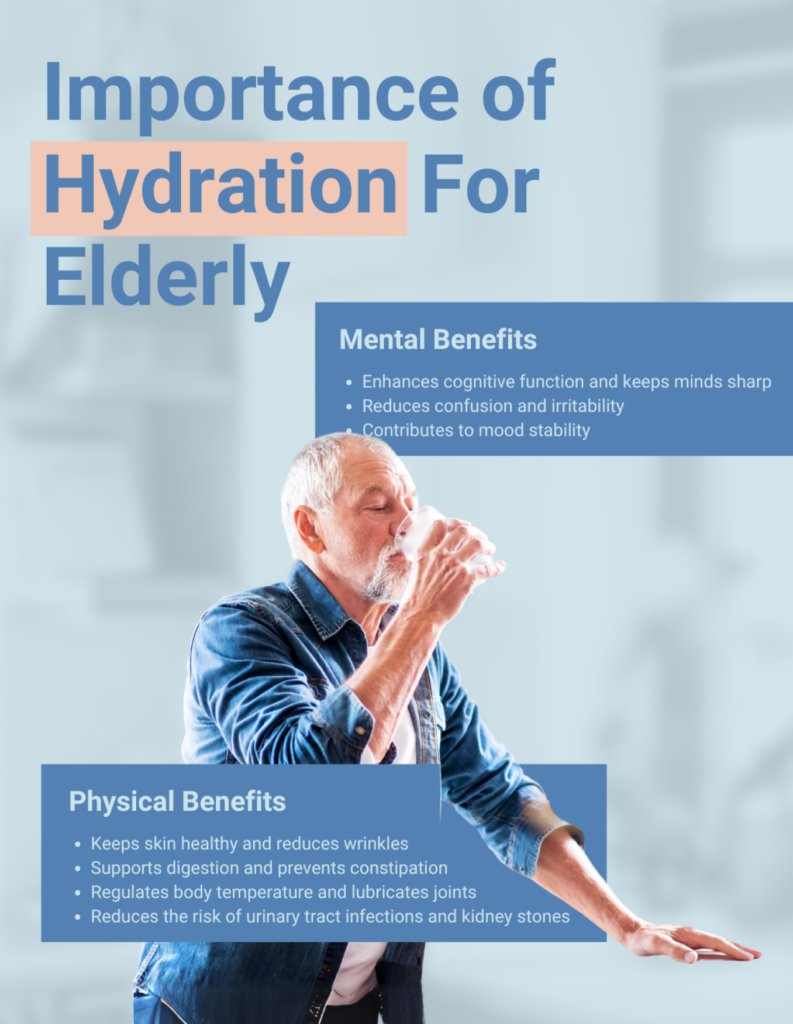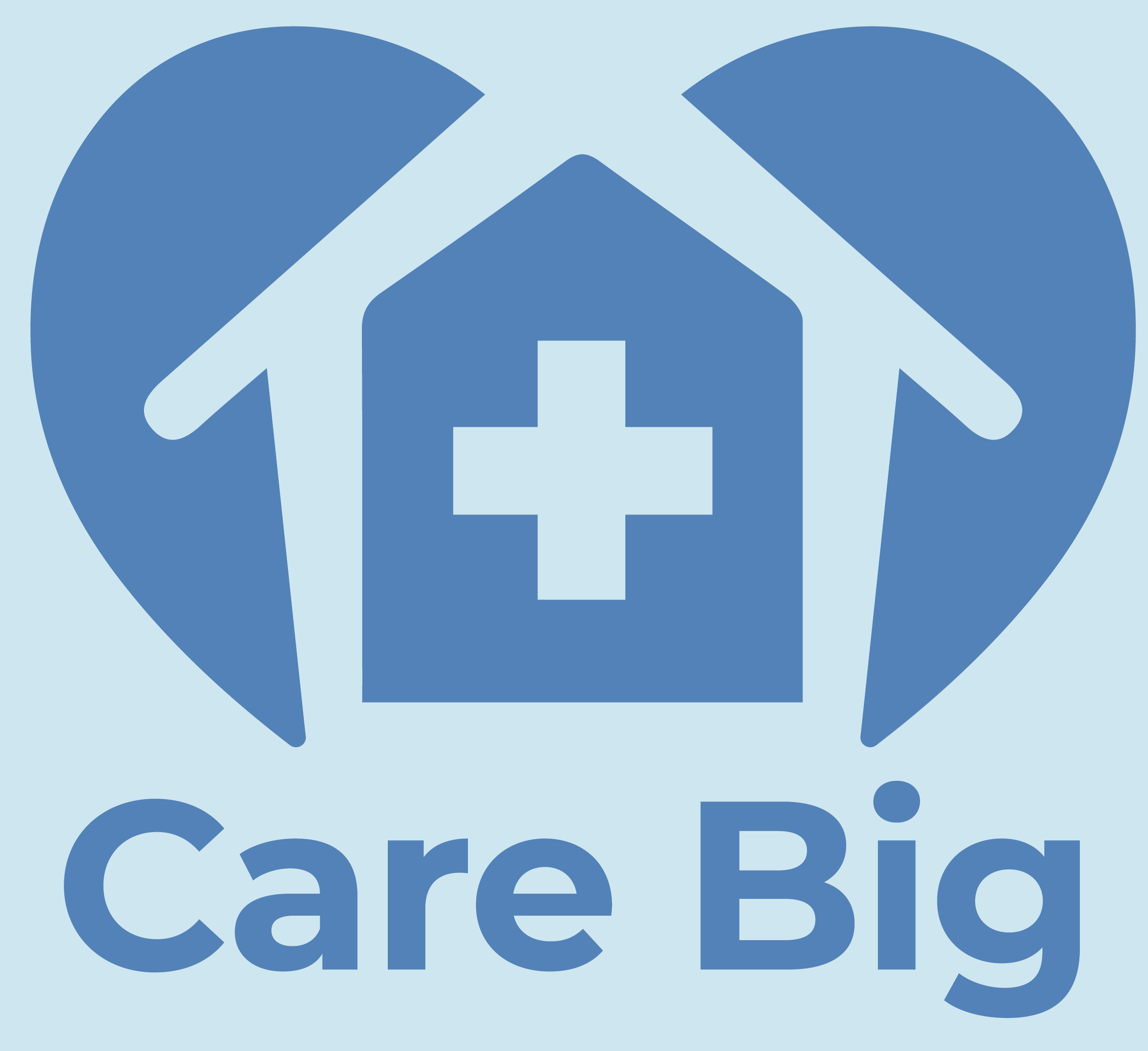Staying hydrated is crucial for seniors. It plays a significant role in maintaining overall health and well-being. As we age, our bodies undergo various physiological changes that make proper hydration even more important. This blog will explore why hydration is vital for seniors, highlighting the benefits for both physical and mental health, the potential risks of dehydration, and practical tips to ensure seniors stay adequately hydrated.
Benefits of Proper Hydration
Physical Health: Why Hydration is Vital for Seniors
Hydration becomes more significant as people age due to various physiological changes. One of the key aspects of staying hydrated for seniors is maintaining healthy skin and preventing dryness. As skin elasticity decreases with age, proper hydration helps maintain its plumpness and reduces the appearance of wrinkles. Additionally, proper hydration supports digestion and prevents constipation, which is especially important since most seniors are prone to digestive issues.
The benefits go even further! Hydration is essential for regulating body temperature, especially during hot weather.It lubricates joints, allowing for comfortable movement, and transports vital nutrients and oxygen to every cell in the body. By ensuring seniors stay hydrated, we can help them maintain their physical health, reduce the risk of urinary tract infections and kidney stones, and even support a healthy heart.
Mental Health: The Role of Hydration in Cognitive Function
Did you know that staying hydrated can also benefit cognitive function? Dehydration can lead to confusion, irritability, and even impaired thinking. For seniors who may already be facing age-related challenges with memory, staying hydrated is even more important. It helps keep minds sharp, reduces the risk of severe cognitive decline, and even contributes to mood stability. Proper hydration can help our cherished seniors feel their best, both physically and mentally.

Risks of Dehydration
Understanding the Risks: Why Seniors Need to Stay Hydrated
There are a few reasons why staying hydrated becomes even more crucial as we age. Our bodies become less efficient at conserving water, and our natural thirst sensation can diminish. Additionally, some medications commonly taken by seniors can increase the risk of dehydration. It’s important to be aware of these factors, take proactive steps, and consult with a doctor to ensure our loved ones are getting the fluids they need. Dehydration can lead to serious health concerns, including problems with the urinary tract and kidneys, electrolyte imbalances, and even low blood pressure. In extreme cases, especially during hot weather, dehydration can contribute to heat exhaustion or heat stroke.
Encouraging Hydration in the Elderly
Practical Tips to Help Seniors Stay Hydrated
Here are some simple yet effective tips to encourage hydration for seniors:
- Routine and Accessibility: Establish a regular drinking schedule throughout the day and make sure water and other hydrating beverages are always within easy reach.
- Flavor and Fun: Offering a variety of delicious options like water infused with fruits or herbs, herbal teas, and low-sugar juices can make staying hydrated more enjoyable.
- The Power of Food: Many delicious foods are naturally hydrating! Including fruits like watermelon and oranges, or vegetables like cucumbers and celery. Even nourishing soups in their diet can be a great way to increase fluid intake.
- Gentle Reminders: For seniors who may have memory concerns, gentle reminders or alarms throughout the day can be a helpful tool.
- Hydration Buddies: Encouraging social interaction around hydration can be a great strategy! Sharing water or other drinks during meals or group activities can make it a fun and social experience.
Monitoring Hydration

How to Monitor and Maintain Hydration for Seniors
Keeping an eye on some key indicators can help us ensure our seniors are getting enough fluids. Here’s what to watch for:
- Urine Color and Frequency: Pale yellow urine typically indicates good hydration, while darker shades may suggest dehydration. How often they urinate is also a good gauge..
- Daily Fluid Intake: Keeping track of the amount of fluids consumed throughout the day can be helpful. At least eight glasses of water or equivalent hydrating beverages is a good general benchmark.
- Physical Signs: Be mindful of signs of dehydration, such as dry mouth, fatigue, dizziness, and infrequent urination. Encourage them to drink fluids immediately if these symptoms appear.
- Regular Check-Ups: Including hydration assessments in regular doctor’s appointments allows for personalized guidance and ensures our seniors are on track.
In Conclusion
Staying hydrated is a critical aspect of maintaining seniors’ health and quality of life. By following these tips and monitoring hydration levels, we can ensure our elderly loved ones stay healthy and happy. Prioritizing hydration should be a daily goal for caregivers and family members to support their elderly loved ones.
At Care Big, we understand the importance of hydration for seniors and are dedicated to providing the best care and resources to help your loved ones stay healthy and hydrated. Contact us today to learn more about our services and how we can assist you in ensuring proper hydration and overall well being for the elderly.
